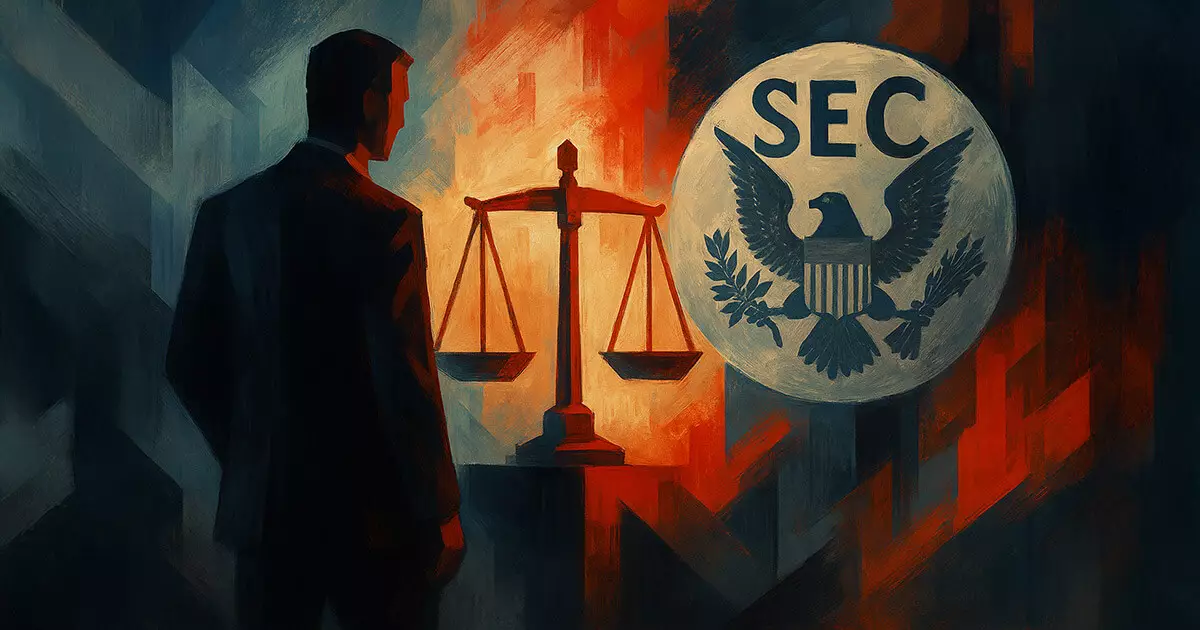In an era flooded with quick-rich schemes masquerading as legitimate investments, the downfall of First Liberty Building & Loan underscores the seductive nature of high-yield promises—promises that ultimately betray unsuspecting investors. The firm’s narrative seemed plausible: short-term bridge loans to businesses at lofty interest rates, with minimal default risk. Such schemes play on the innate desire for financial security and the hunger for extraordinary returns, especially among retail investors eager to capitalize on the American Dream. Yet, beneath this veneer of prosperity lies a disturbing reality—an orchestrated Ponzi scheme that defrauded nearly 300 individuals out of over $140 million over a decade.
What makes this case particularly troubling is the calculated exploitation of trust and the strategic use of right-wing media and personal networks to lure investors. Frost, a prominent figure within Georgia’s conservative circles, intertwined his political influence with financial misconduct, blurring the boundaries between social standing and criminal deception. The narrative propagates an illusion of stability and promise, which, when shattered, leaves victims betrayed and the financial system momentarily undermined.
Blinded by Hope: The Toxic allure of High-Yield Investing
The core problem lies in the allure of high-yield investments that seem too good to be true. Promises of 18% returns annually are not only unrealistic but also serve as red flags for potential fraud. Yet, investor greed and a desire for quick gains often blind people from critical due diligence. The SEC’s findings reveal a pattern: new investor funds kept a fraudulent pyramid from collapsing for years. The cycle of using fresh funds to pay earlier investors is classic Ponzi anatomy—sustainable only as long as new money keeps flowing.
In a broader context, this scheme exemplifies a fundamental failure of risk assessment among retail investors who, seduced by aggressive marketing and persuasive promises, overlook warning signs. It underscores the urgent need for better investor education—an area where regulatory agencies and financial literacy initiatives must sharpen their focus. If more individuals understood that extraordinary returns rarely come without extraordinary risk, perhaps instances like this could be curtailed before they grow into large-scale fraud.
The Decay of Trust and the Cost to Society
The scandal extends beyond mere financial loss; it is an erosion of trust in the financial system, political institutions, and even local communities. Frost’s political donations and active participation in Georgia’s Republican circles highlight a troubling intersection of influence and corruption. When community leaders and political donors become entangled in financial fraud, it tarnishes the reputation of entire ideological groups and fosters widespread skepticism toward the economic actors in their neighborhoods.
This case also reveals systemic vulnerabilities—how regulatory oversight can lag behind sophisticated schemes that adapt and exploit new loopholes. The SEC’s action, including an emergency asset freeze and pursuit of disgorgement, illustrates a necessary defensive response. Nonetheless, the prevailing lesson should be that regulatory vigilance alone cannot prevent all such schemes. A culture of oversight, accountability, and critical awareness must be cultivated at the grassroots and individual levels.
The Political Dimension and Ethical Implications
Frost’s political connections complicate the narrative, leading to perceptions that financial misconduct is intertwined with influence and entitlement. When individuals leverage political power to entrench themselves financially, it promotes an environment where accountability is secondary to personal gain. This duality—where business integrity is compromised under the guise of ideological service—poisons the societal well-being and weakens the foundation of free enterprise.
The ethical implications extend into how communities vet their leaders and financiers. If political donors can manipulate their influence to shield themselves from scrutiny, systemic reforms are urgently needed. Transparency in political donations, enhanced oversight of financial dealings by prominent figures, and stricter enforcement against abuse of influence are essential remedies for restoring integrity.
Facing Reality and Moving Forward
The collapse of First Liberty serves as a stark warning: high-yield promises are often just a facade for deception. For those within the conservative circles affected, it should act as a wake-up call—relying on political influence and social connections cannot substitute for diligent financial analysis. Investors need to understand that trusting the wrong stories—regardless of who tells them—can cost dearly.
Regulators must step up by implementing more rigorous screening and warning mechanisms, but perhaps more critically, there needs to be an awakening of financial literacy woven into community fabric. Only then can society better differentiate between legitimate growth opportunities and schemes designed solely for personal enrichment at the expense of others. Ultimately, this scandal underscores the importance of vigilance, skepticism, and accountability—values that should be vital components of any center-right liberal framework committed to protecting individual rights and ensuring market integrity.
















Leave a Reply